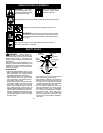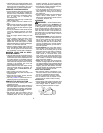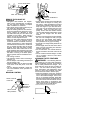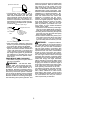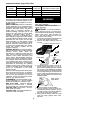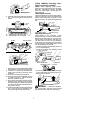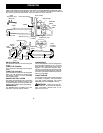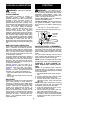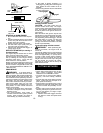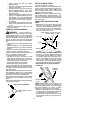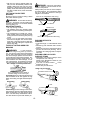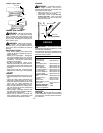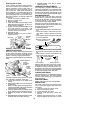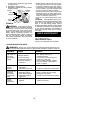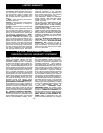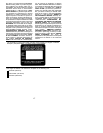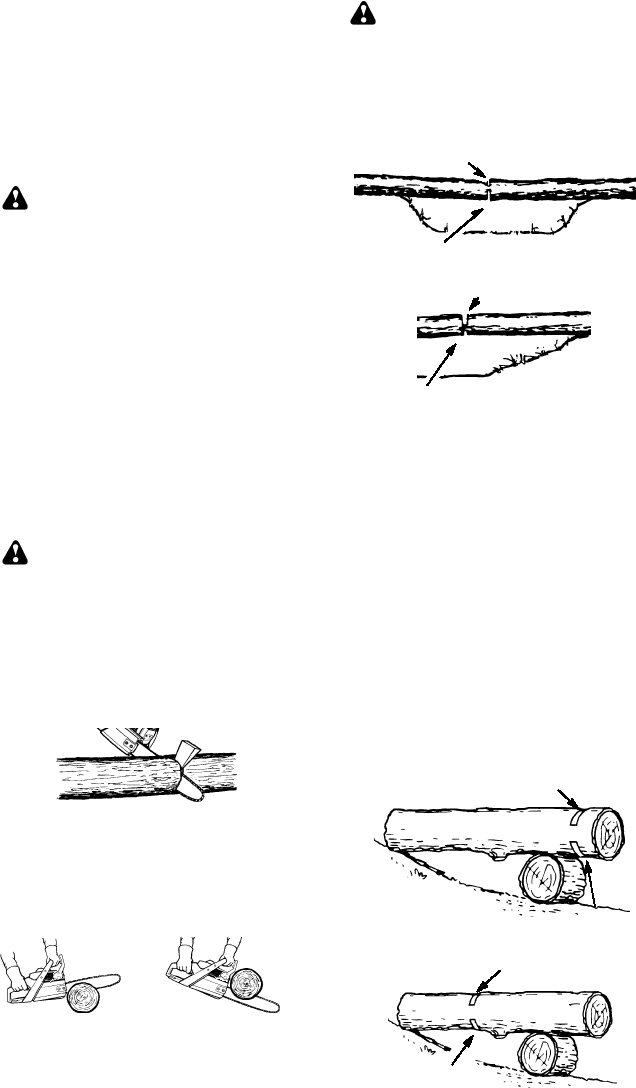
12
S
DO NOT cut down a partially fallen tree
with your saw. Be extremely cautious with
partially fallen t rees that may be poorly
supported. When a tree doesn’t fall com-
pletely,setthe sawaside andpull downthe
tree with a cable winch, block and tackle,
or tractor.
CUTTING A FALLEN TREE
(BUCKING)
Bucking is the term used for cutting a fallen
tree to the desired log size.
WARNING:
Donot stand on the log
being cut. Any portion can roll causing loss
of footing and control. Do not stand downhill
of the log being cut.
IMPORTANT POINTS
S
Cut only one log at a time.
S
Cut shattered w ood very carefully; sharp
pieces ofwood could beflung toward oper-
ator.
S
Use a sawhorse t o c ut small logs. Never
allow another person to hold the log while
cutting andnever hold the log with your leg
or foot.
S
Do not cut in an area where logs, limbs,
and roots are tangled such as in a blown
down area. Drag the logs into a clear area
before cutting by pulling out exposed and
cleared logs first.
TYPES OF CUTTING USED FOR
BUCKING
WARNING:
If saw becomes
pinched or hung in a log, don’ t try to force it
out. You canlosecontrol of the sawresulting
in injury and/or dam age to the saw. Stop the
saw, drive awedge ofplastic orwood into the
cut until the saw canbe removed easily. Re-
start thesawand carefully reenter the cut. To
avoid kickback and c hain damage, do not
use ametal wedge. Donot attempt to restart
your saw when it is pinched or hung in alog.
Use a wedge to remove pinched saw
Turn saw
OFF
and use a plastic or
wooden wedge to force cut open.
Overcutting begins onthe top sideof thelog
with the bottom of the saw against the log.
When overcutting use light downward p res-
sure.
Overcutting Undercutting
Undercutting involves cutting on the under-
side of the log with top ofsaw against thelog.
When undercutting use light upward pres-
sure. Hold saw firmly and maintain control.
The saw will tend to push back toward you.
WARNING:
Never turn saw upside
down to undercut. The saw cannot be con-
trolled in this position.
Always make your first cut on t he compres-
sion side of the log. The compression sideof
the log is where the pressure of the log’s
weight is c oncentrated.
Second cut
First cut on compression side of log
First cut on compression side of log
Second cut
BUCKING WITHOUT A
SUPPORT
S
Overcut through
1/3
of the diameter of the
log.
S
Roll the log over and finish wi th a second
overcut.
S
Watch for logs with a compression side to
prevent the saw from pinching. See il-
lustrations forcutting logs with a compres-
sion side.
BUCKING USING A LOG OR
SUPPORT STAND
S
Remember your first cut is al ways on the
compression side of the log.
(Refer to the illustrations below for your
first and second cut)
S
Your first cut should extend
1/3
of the
diameter of the log.
S
Finish with your second cut.
1
st
Cut
2
nd
Cut
Usingalogforsupport
2
nd
Cut
1
st
Cut



